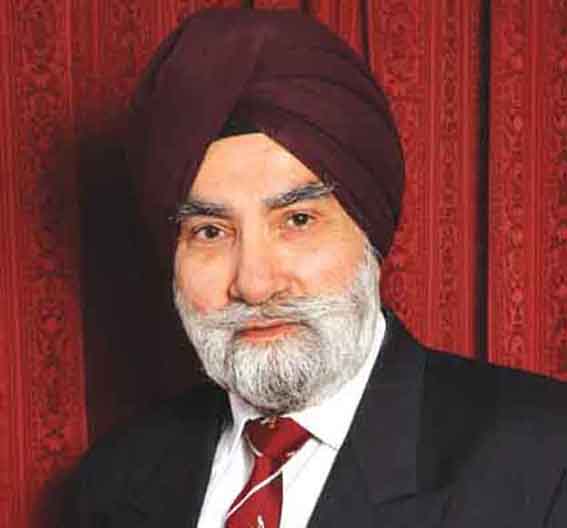Two Sikh Delegations Meet Prime Minister Modi

Quotation:
(1) Sikhs must be approached and dealt with at State level as a collective group and entity.
(2) They must be governed impersonally, that is through the rule of law and not by arbitrary will, and this self-limitation must further be circumscribed by the immemorial customs, long established traditions and the facts of the history of the Sikhs. (Sirdar Kapur Singh, The Golden Temple: Its Theo-Political Status, The Sikh Review, August 1974)
Two recent meetings on 8 February and 24 March between some Sikhs and Prime Minister Modi remind us of the above quotation from a long article by Sirdar Kapur Singh. A news headline reads: Sikh delegation calls meeting with PM Modi like a hug to the community. The danger is that some hugs can crush! While any meeting with good intentions to establish better understanding of issues cannot be bad, the process can also be seen as a salami tactic to divide the Panth.
Sardar Tarlochan Singh, ex-MP and Minorities Commissioner, was present at the first meeting and recorded the issues he raised in a TV interview. Essentially, he drew attention to the root causes of Sikh grievances since 1947. Such feedback is always advisable for Panthic accountability.
Prime Minister Modi was compelled to make a U-turn after the year-long protests by all India farmers led by Panjab. There was much loss of life and damage to Panjab economy. That was followed by the crushing defeat of BJP in the Panjab elections. Historically, egalitarian Sikhi ideology is seen as a formidable obstacle in the way of any regime heading towards totalitarianism. Confrontation or conciliation with the Sikhs are the alternatives before PM Modi. It seems he has heeded sane advice and opted for conciliation while expressing continual admiration for Sikh ideology and the massive contribution of the Sikh Qaum towards Indian independence and economy as the ann-dataas of India.
There is also a historical lesson for PM Modi. Ex-PM Indira Gandhi took a confrontational course against the Sikhs when, on 25 June 1975, she imposed Internal Emergency on India. On 30 June 1975, Shiromani Akali Dal resolved to oppose the fascist tendency of the Congress. On 7 July 1975, Akalis launched Save Democracy Morcha from the Akal Takht Sahib offering daily voluntary arrests**. Instead of accepting democratic processes, Indira Gandhi resolved to teach the Sikh community a lesson. After the partition of the Indian sub-continent when the Sikhs suffered the most, that was the start of the next blood-stained phase of the history of Panjab and India. No democratic country can be proud of such a record of human rights abuses.
The recent informal but well publicised Sikh meetings with PM Modi in the aftermath of the farm law protests and Panjab elections may be a good sign. However, concern has been expressed because there is no clear agenda or the criteria used for Sikh representation.
As noted on forums, such meetings should include respected Sikhs from Panjab who are fully conversant with the issue. The people and the state are under massive debt. No matter how informal, a record of the meetings should be kept.
Otherwise, in the UK, we are reminded of one such meeting of some Sikhs with PM Modi in November 2015 which was misunderstood and caused internal divisions.
(**SikhRI link for full article: https://sikhri.org/articles/the-emergency-the-sikhs )
Gurmukh Singh OBE
Principal Civil Servant Retd